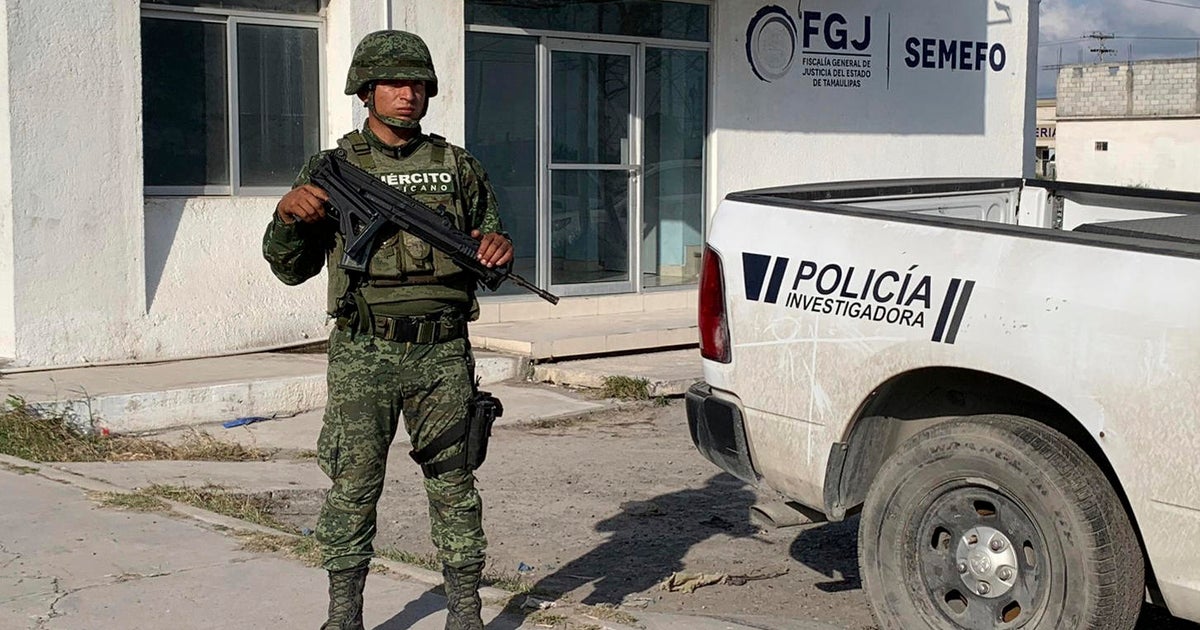She took in 7 dogs with who survived abuse and have disabilities. Now, they're helping to inspire others
If you walk around Huntington Beach, California, you may spot a woman holding five leashes with one hand and pulling a wagon with the other. A closer look will show she has seven dogs with her – and none of them are walking on all four legs. Her name is Debbie Pearl, and all of her dogs have disabilities and use wheelchairs or prosthetic limbs.
There is no doubt Pearl is a dog lover – she trains them for movies and said she has always had "quite a few" of her own dogs at home. In 2005, she created a nonprofit called Dream Fetchers, which helps rescue dogs from the streets and from euthanasia. As part of the organization's mission, members of Pearl's personal pack work as therapy dogs.
About nine years ago, she adopted her first dog with a disability, Fast Eddie.
"Eddie was definitely my inspiration for adopting other disabled dogs," Pearl told CBS News. "He was so full of life. He never let anything slow him down. I mean, he truly was, what you would say, the word 'unstoppable' encompasses."
She said Eddie was left on the streets of California with a spinal injury. She found him the same way she finds most of her dogs – a shelter reached out to her to see if she was interested in adopting him.
"After we rescued Eddie, I was contacted about another dog that was in Mexico, because somebody who knew me saw this dog and thought I might be interested," she said. "And of course, when I saw him it was love at first sight."
"From there, they just started coming. People just started reaching out. The word got out that I was a really great home, I love disabled dogs and one after the other started to come," she laughed.
Pearl said she is selective when it comes to adopting dogs, because they all become her therapy dogs, a group she calls "The Unstoppable Dogs." The pack — Zeek, Pop, Speedy, Eddie, Stevie, Elliot and Sydney — are all are survivors of abuse.
Most of her dogs use special wheelchairs that hook onto their hind legs to help them move. Elliot and Sydney use prosthetics that attach to their limbs. Since both of them are still learning how to walk with their new devices, Pearl pulls them in a wagon while she walks the other dogs.
About once a week, she gathers up her crew and takes them to hospitals, schools or the Easter Seals — a nonprofit that helps adults with disabilities.
"I look for dogs that have been through traumatic events, but that have this amazing gift of forgiveness," Pearl said. "And that's a powerful thing for a lot of people, because they can see the courage, the resilience that these dogs have. And all of mine have been through the worst – and they've come out shining."
Pearl and her dogs are not only known around Huntington Beach, but around the world. Her "Unstoppable Dogs" Instagram page has 137,000 followers. She said lot of their social media followers and the people they visit for therapy have disabilities as well and they can relate to the dogs – and their joy.
"All of these dogs are extremely resilient, for sure. But one dog definitely stands out above all the rest and that dog, I think, is Elliot." Pearl said. "So, Elliot is a victim of extreme abuse. He lost all four of his legs at the hands of humans. And he has now got four prosthetic legs. And this is a dog that never walked for a year of his life, and now he's re-learning to walk again."
Pearl said to her, Elliot exemplifies "courage and resilience."
CBS News went on a walk with Pearl and her dogs and each one was more excited than the next to get outside, get hooked to their wheelchairs and get to running. She walked them from her home to a nearby park, where they were unleashed – literally. Once she took the leashes off the dogs in wheelchairs, there was no stopping them from running around together.
She says all her dogs are here because they've gotten a second chance at life. And for other survivors of abuse, or those with disabilities, that can be a powerful thing to see.
"Even though they may be in a wheelchair, even though they may be missing a limb, they're making the best of their life. Even despite what has happened. So they just go on living. And they live their life to the fullest," she said. "And I think that says a lot that hopefully others can take from that because it doesn't matter maybe what has happened to you in the past or what you're dealing with at this moment. Live. Because you can live a great life and be happy."







